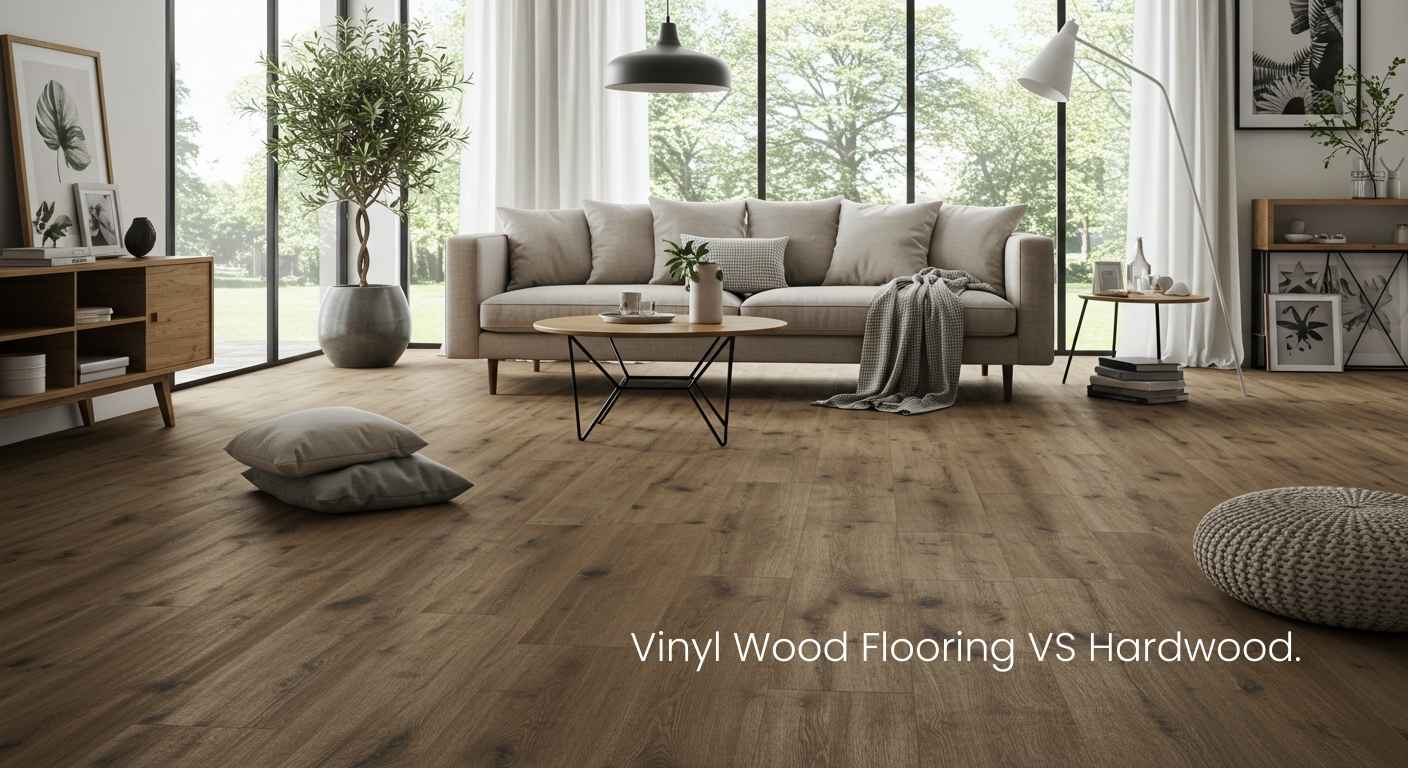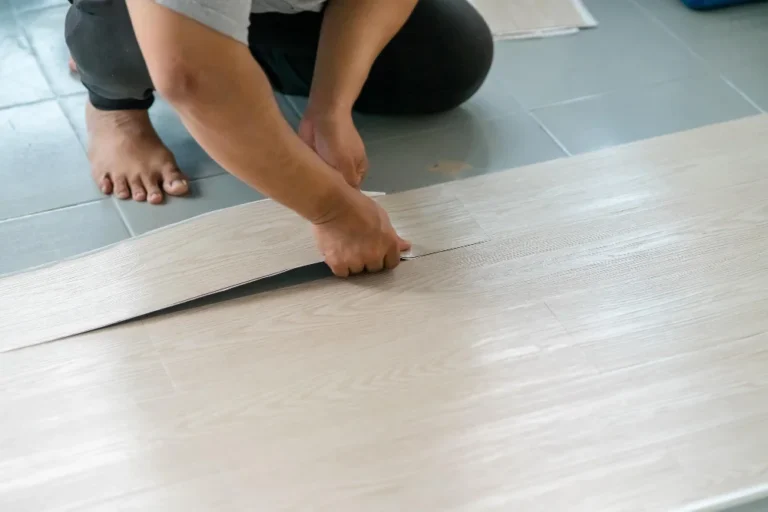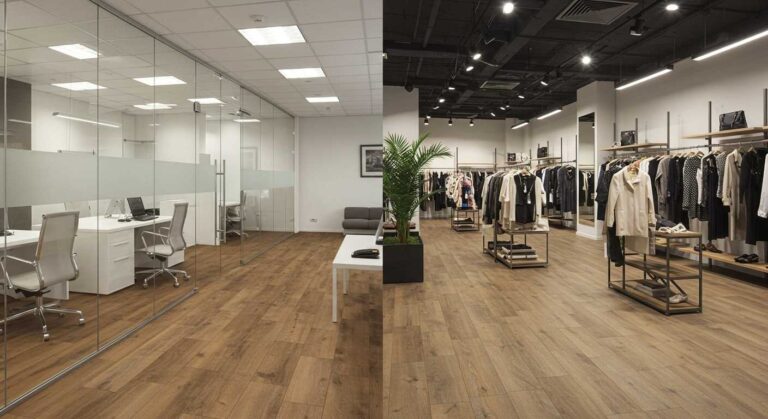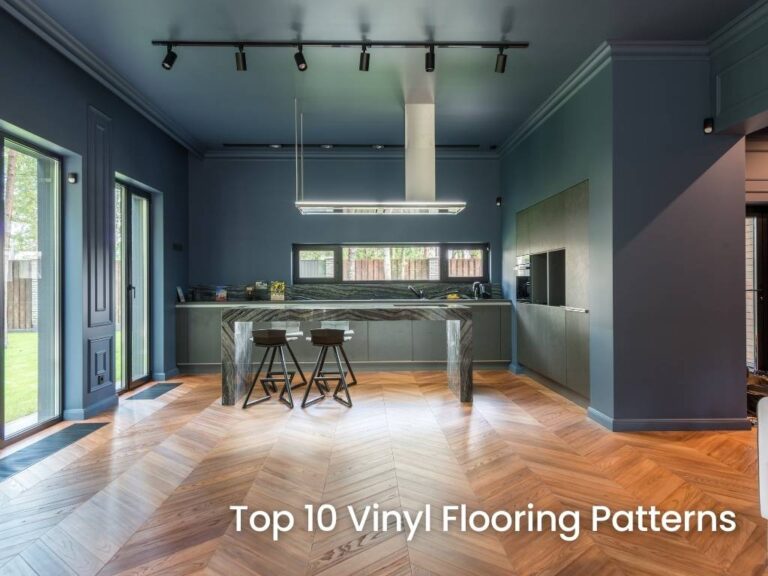Many homeowners struggle to decide between vinyl flooring vs. hardwood flooring when it comes to the ideal flooring for their homes. Both options bring their own unique benefits—vinyl wood flooring is praised for being affordable, durable, and water-resistant, while hardwood is valued for its natural beauty, timeless appeal, and ability to add long-term value to a property.
These distinctions make the vinyl vs. hardwood flooring comparison one of the most frequently asked questions in home remodeling and design. Your lifestyle, financial situation, and preferred style will often determine the best option.
Everything you need to know about durability, cost, style, upkeep, and overall value will be covered in this guide. You’ll know for sure which kind of flooring is best for your house by the end.
What Is Vinyl Wood Flooring?
Vinyl wood flooring is a contemporary substitute for conventional hardwood that blends the durability of synthetic materials with realistic wood-like patterns. It is designed to resemble wood’s natural appearance while providing useful features that accommodate today’s hectic schedules.
There are two main types of vinyl flooring:
- Vinyl Plank Flooring (VPF): Designed in long planks that closely resemble real wood boards.
- Luxury Vinyl Flooring (LVF): A premium version with enhanced textures, patterns, and durability, giving a more authentic hardwood appearance.
Key Features of Vinyl Wood Flooring:
- Affordable: Offers a stylish wood look without the high price tag of hardwood.
- Waterproof: Ideal for kitchens, bathrooms, and basements where moisture is a concern.
- Easy Installation: Many options come with click-lock systems, making them DIY-friendly.
When Is Vinyl Flooring the Right Choice?
Vinyl flooring is an excellent choice if you want low-maintenance, water-resistant flooring. It’s ideal for families with children or dogs, rental houses, or any location where functionality and style are equally important.
What is Hardwood Flooring?
Hardwood flooring is one of the most traditional and popular flooring solutions, recognized for its natural beauty and durability. Unlike synthetic flooring, hardwood is created from actual wood, giving it a warm, natural appearance that never goes out of style.
There are two primary types of hardwood flooring:
- Solid hardwood is made from a single piece of natural wood, which provides longevity and the capacity to be sanded and refinished several times.
- Engineered hardwood is made with a real wood top layer over a plywood base, making it more resistant to moisture and temperature fluctuations while keeping the beauty of wood.
Key Features of Hardwood Flooring:
- Natural Look: Rich textures, grains, and tones add timeless elegance to any area.
- Long-Lasting: With proper maintenance, hardwood flooring can last for decades or even generations.
- High Resale Value: Homes with hardwood floors typically have a better market value and more buyer appeal.
Ideal Use Cases:
Hardwood is ideally suited to living rooms, bedrooms, and dining areas, where its natural beauty can shine. It’s a terrific alternative for homeowners who want to invest in the long-term value of their property while enjoying the pleasure of original wood.
Vinyl Flooring vs. Hardwood: A Side-by-Side Comparison
When picking between vinyl flooring and hardwood, it’s helpful to compare both based on the most important features for homeowners.
|
Feature |
Vinyl Flooring |
Hardwood Flooring |
|
Appearance & Style |
Designed to mimic real wood with realistic textures and finishes. Modern vinyl wood flooring and luxury vinyl options look very close to hardwood. |
Offers unmatched natural beauty with unique grains, patterns, and tones. Each plank is one-of-a-kind. |
|
Durability & Lifespan |
Highly resistant to scratches, stains, and moisture. Waterproof options are ideal for kitchens, bathrooms, and basements. Lifespan: 10–20 years. |
Extremely durable and can last decades (50+ years) with proper care. However, it is not waterproof and can be damaged by moisture. |
|
Maintenance |
Easy to clean with regular sweeping and mopping. No refinishing required. |
Requires more upkeep; may need refinishing every few years to maintain shine and remove scratches. |
|
Installation |
Vinyl wood flooring options come with a glue-down installation system. Faster and cheaper installations. |
Usually requires professional installation due to nailing, sanding, and finishing. |
|
Cost |
Budget-friendly. A great option for affordable flooring without compromising style. |
Higher upfront investment, but adds significant resale value to the home. |
|
Eco-Friendliness |
Made from synthetic materials, though some options are recyclable and low-VOC. |
Natural and sustainable, especially when sourced from certified forests. |
Benefits Of Vinyl Wood Flooring VS Hardwood Flooring
Pros of vinyl wood flooring
- Affordable Choice: Offers the beauty of wood at a fraction of the cost of hardwood.
- Waterproof & Moisture-Resistant: Perfect for kitchens, bathrooms, and basements where hardwood struggles.
- Durable & Scratch-Resistant: Stands up to everyday wear, kids, and pets.
- Glue-Down Installation: Creates a stable, long-lasting floor with a seamless finish—ideal for high-traffic areas.
- Low Maintenance: Easy to clean with simple sweeping and mopping; no polishing or refinishing needed.
- Comfort & Quiet: Softer underfoot compared to hardwood and reduces noise.
Vinyl wood flooring is the greatest option if you want an attractive, durable, waterproof, and cost-effective flooring solution that is easy to live with on a daily basis.
Pros of HardWood Flooring
- Timeless Beauty: Real wood grains and textures provide an authentic and sumptuous feel.
- Hardwood has a long lifespan and may be refinished for future generations.
- Adds prestige and can increase home value.
Cons of Hardwood Flooring
- More expensive than vinyl flooring.
- Not waterproof: prone to water damage, warping, and discoloration.
- High Maintenance: Requires polishing, refinishing, and thorough cleaning.
- Professional installation is typically required for complex installations, increasing costs and time.
Hardwood is perfect for those prepared to make a significant investment in long-term beauty, but for most homes, vinyl wood flooring provides the same beautiful look with significantly fewer headaches.
Which Flooring Is Right for You?
The decision between vinyl and hardwood flooring ultimately comes down to your priorities, lifestyle, and financial situation.
Choose Vinyl Wood Flooring if:
- You want a budget-friendly option without compromising on style.
- You need waterproof flooring for areas like kitchens, bathrooms, or basements.
- You prefer low-maintenance floors that don’t require refinishing.
- You’re looking for a durable solution that handles pets, kids, and heavy foot traffic.
- You value a seamless glue-down installation that provides stability and longevity.
Choose Hardwood Flooring if:
- You’re prepared to spend more money on natural wood.
- You’re looking for a long-term solution that can be repeatedly refinished.
- You consider flooring to be a component of the luxury appeal and resale value of your house.
Vinyl wood flooring is the better option for the majority of contemporary homes, particularly those where functionality and style must coexist. It has the same warm, sophisticated appearance as hardwood without the expensive price tag or difficult maintenance.
The best option depends on your demands, although both vinyl and hardwood floors have special benefits. Although it costs more and requires more upkeep, hardwood offers classic beauty and long-term value. Conversely, vinyl wood flooring is a great option for contemporary homes because it strikes the optimal combination between price, durability, and design.
Vinyl flooring is the best option if you want low-maintenance, waterproof, and reasonably priced flooring that still has the coziness of real wood.
✨ Decora offers high-quality vinyl wood flooring that is elegantly designed and engineered to last. Upgrade your room today.




